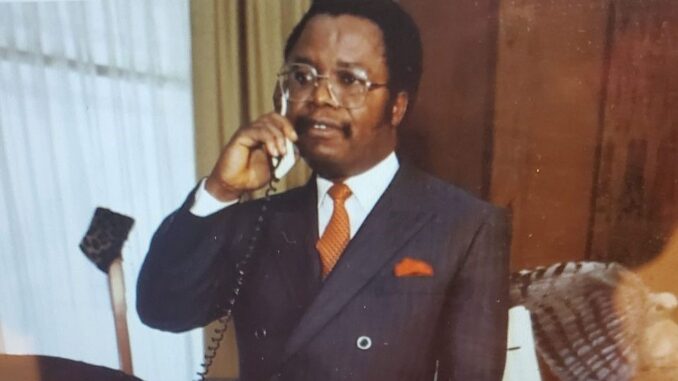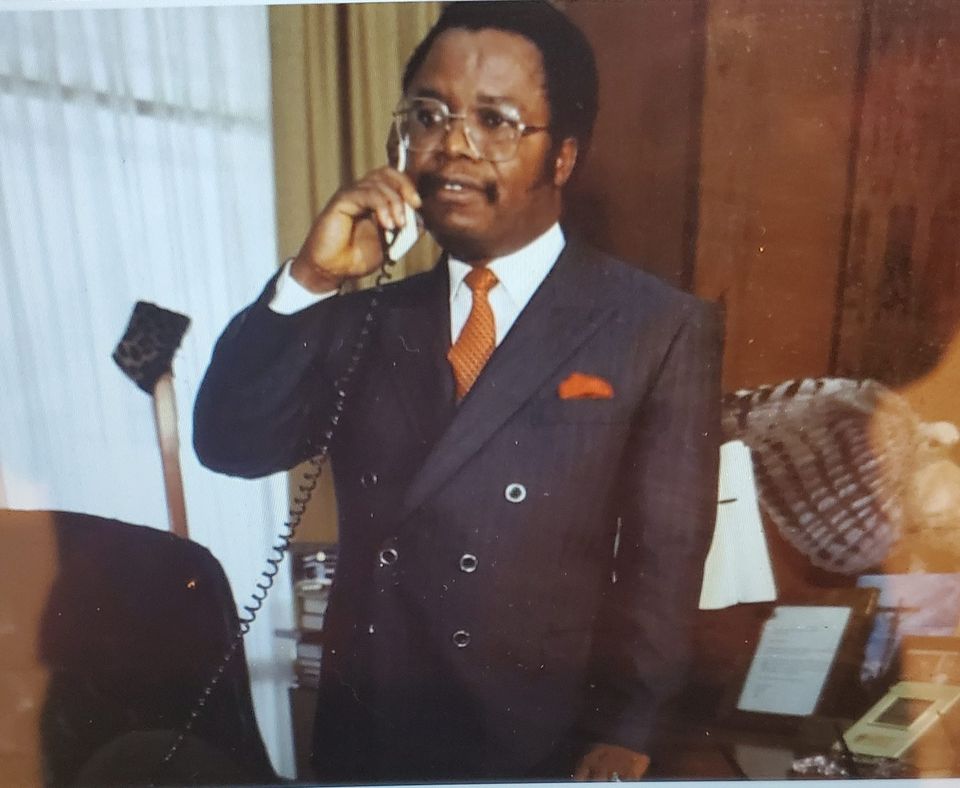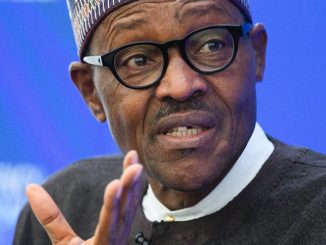
The day late President Samuel Doe embarrassed a visiting US official at the Executive Mansion

Note: This’s now a “declassified” document available on social media by some former U.S. Diplomatic officials.
The day president Doe embarrassed a visiting US official at the Executive Mansion
For ten years Doe confided in many of his family members, friends, foreign guests and some well wishers that he was a “gun proof” and he could never be killed by gun by anyone.
The Former Director of the CIA, Judge William H. Webster secretly visited Monrovia to see President Doe. Doe had a meeting with Director Webster at the Executive Mansion and afterward food and drinks were served. While having discussion with the CIA boss in the presence of some government officials, bodyguards, and some protocol officers Doe told the CIA boss that he was “Gunproof/ Bulletproof” and wanted the CIA boss to demonstrate on him “Doe” to prove him right. Doe instructed one of his bodyguards to get a pistol. The bodyguard brought the pistol and Doe attempted giving the pistol to the CIA boss to shoot him. The CIA boss refused to shoot Doe. The occasion was very embarrassing to almost everyone.
The CIA boss returned to the U. S. Embassy and explained everything that went on at the Executive Mansion to the Deputy Chief of Mission at the U.S. Embassy near Monrovia, Keith L. Wauchope (1986-1989).
Here’s is Keith L. Wauchope’s account about what the CIA boss told him about Doe :
“Another event that occurred while I was Charge’ was the visit of the Director of the CIA, Judge Webster. The principal objective of his unpublicized Africa visit was to read the riot act to Mobutu, who had been acting unpredictably. He would be coming to Liberia because of the size of the agency presence. He would overnight and leave the next morning. The station set up the program with little consultation with me. The station chief told me one of the events was a meeting with the president to which I was not invited.
I was very annoyed as I thought that was entirely inappropriate, but I couldn’t get no support from the Department. As I learned after the fact, when Webster met Doe, the conversation quickly deteriorated from one of substanstantive issues to a bizarre exchange that was typically African. Doe said to Webster, knowing what an important official he was, “Mr. Director, do you know that I’m bullet proof?” The Director said, Bullet proof?” Doe said, “yes. I have a special grigri that I wear around my neck and, and if I’m wearing it I can’t be shot.” The Director said “oh, that’s very interesting.” Doe said “No, no, no. It’s really true. I’ll demonstrate.”
He called on one of his bodyguards and he said “Here, give the director this gun and then I have him shoot me.” The Director said, “No, I’m not going to do that.” Doe insisted, “No, really.” Webster said, “No, I’m not doing that.” So, Doe relented and said, Well, I will tell you what, I’ll invite you over after dinner and we will sit around and have few beers , and we’ll do a demonstration for you.”
When he returned to the Embassy it was very obvious that this exchange unnerved Webster extraordinary. Webster is a very fine, upstanding individual; he was a former judge and Director of the FBI, and now head of the CIA. His very high level entourage was, by turns concerned and bemused. His delegation included of the General Counsel, the head of the Africa branch, the chief of covert operations, and the head administrative official. Everybody had wanted to take a trip with the director on his special plane and now they were confronted with this extraordinary problem. There was a strong sense that Doe was just bluffing He just wants to show that the head of CIA, this omnipotent organization, as Doe’s knowledge of the CIA comes Hollywood, that the CIA could not kill him because of his grigri”
So, What would have happened had the CIA boss accepted the request of Doe and shot him? What the news around the world would have been?
Johnston, IA Saturday 07/30/2022
Source:
Keith L. Wauchope
Deputy Chief of Mission
U.S. Embassy
Monrovia, Liberia
(1986-1989)
The Association for Diplomatic Studies and training.
Foreign Affairs and Oral History collection
Washington DC.



